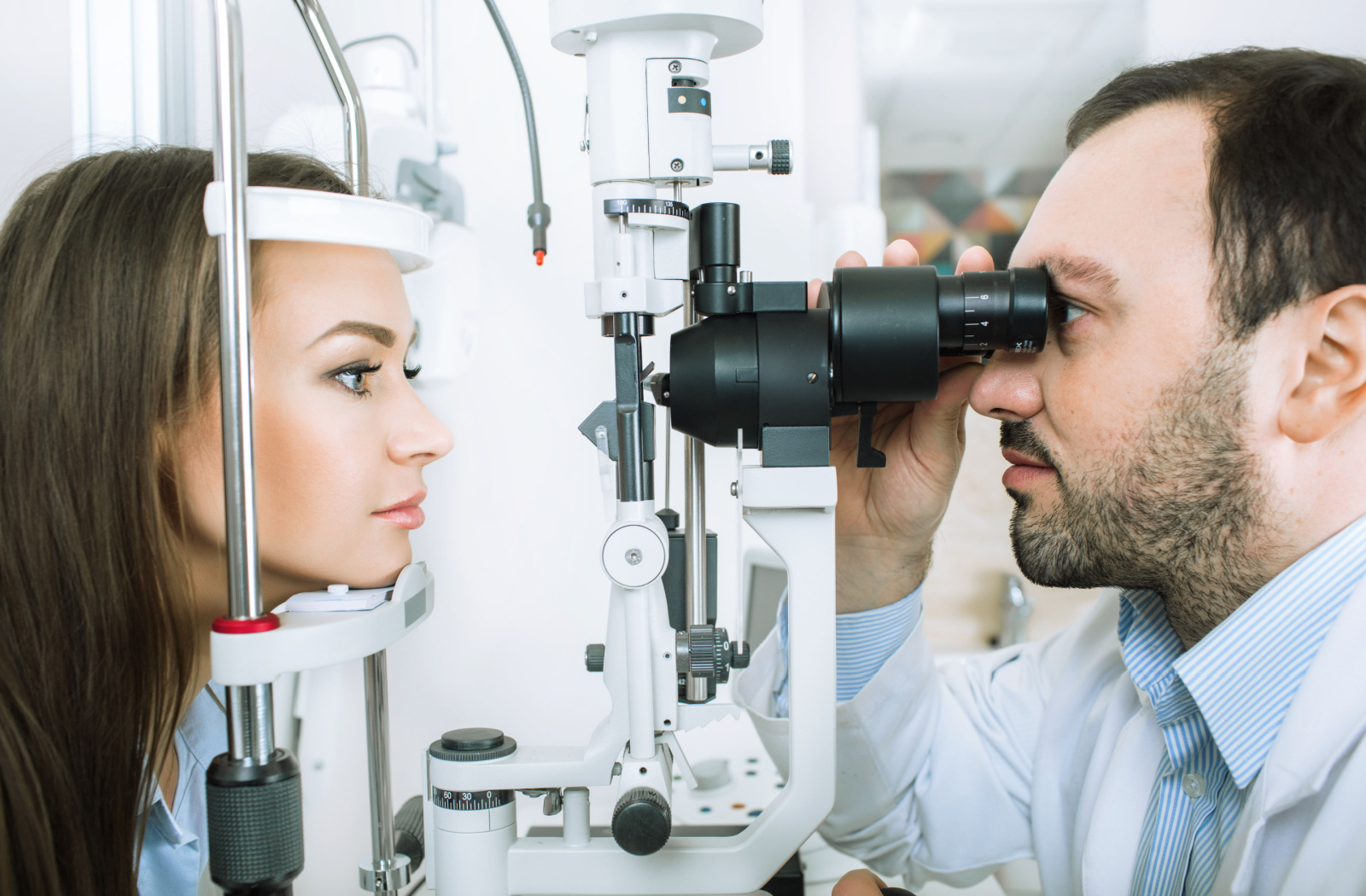Dry eyes, also known as keratoconjunctivitis sicca, occur when the eyes do not produce enough tears or when the tears evaporate too quickly. This can result in discomfort, redness, and blurred vision. While dry eyes may seem like a minor inconvenience, they can have serious implications for eye health if left unaddressed.
Dry eye alone does not typically lead to complete blindness. However, severe and chronic cases of untreated, dry eye can contribute to other eye conditions that may eventually lead to vision loss if left untreated.
The Risk of Untreated Dry Eyes
When the eyes do not produce enough tears, they become more vulnerable to irritants and infections. The lack of moisture also makes it difficult for the eyes to flush out debris and bacteria, leading to potential damage to the cornea.
If left untreated, dry eye can progress to more serious conditions such as:
- Corneal abrasions: When the cornea is constantly exposed to irritation and dryness, it can get scratched. This can be extremely painful and may require medical intervention.
- Corneal ulcers: If a corneal abrasion becomes infected, it can develop into a corneal ulcer. These ulcers are open sores on the cornea and can lead to scarring and vision loss if not treated promptly.
- Conjunctivitis: Commonly known as pink eye, conjunctivitis is an inflammation of the conjunctiva (the clear tissue that covers the white part of the eye). Dry eyes are more prone to developing this condition, resulting in blurry vision, redness, and discomfort.
- Keratitis: This is an inflammation of the cornea that several factors, including dry eyes, can cause. It can lead to vision loss if not treated promptly.
- Corneal neovascularization: When the cornea lacks proper lubrication, new blood vessels may grow in an attempt to deliver more oxygen and nutrients. While this may seem like a natural response, these new blood vessels can interfere with vision and increase the risk of corneal scarring.
- Blepharitis: This condition is characterized by inflamed, red eyelids and can lead to dry, itchy eyes. Chronic blepharitis can damage the glands that produce tear film, exacerbating dry eye symptoms.
- Meibomian gland dysfunction (MGD): The meibomian glands produce the oily layer of the tear film that helps keep tears from evaporating too quickly. When these glands become blocked, dry eye symptoms can occur.
- Vision loss: In severe cases of untreated dry eye, the damage to the cornea and other structures in the eye can eventually lead to permanent vision loss. This is why it is important to seek treatment for dry eyes as soon as possible.
Common Cause of Dry Eyes
Dry eyes can occur for various reasons, including environmental factors, lifestyle choices, and health conditions. Some common causes include:
- Aging: As we age, our bodies produce fewer tears, and the quality of those tears decreases. This is especially true for women after menopause.
- Medications: Certain medications, such as antihistamines, decongestants, and antidepressants, can affect tear production.
- Contact lens wear: Contacts can irritate the eyes and make them feel dry. This is particularly true for those who wear contacts for extended periods.
- Screen time: Staring at screens for long periods of time can cause us to blink less frequently, leading to dry eyes.
- Medical conditions: Health issues such as diabetes, rheumatoid arthritis, and thyroid disorders can all contribute to dry eye symptoms.
- Environmental factors: Dry climates, windy conditions, and air conditioning or heat exposure can all dry out the eyes.
- Poor diet: A lack of essential fatty acids can cause dry eyes. These fatty acids help keep tears from evaporating too quickly.
Taking Care of Your Eyes
Taking care of your eyes and seeking treatment for dry eye symptoms is important to prevent potential complications. Some steps you can take include:
- Using eye drops or artificial tears: These can help provide temporary relief and keep your eyes lubricated. Consult your optometrist for the best type of eye drops for your specific condition.
- Taking breaks from screen time: Whether from computers, phones, or TVs, prolonged screen time can worsen dry eye symptoms. Make sure to take breaks every 20 minutes and look away from the screen for at least 20 seconds to give your eyes a rest.
- Applying warm compresses: This can help open up blocked meibomian glands and improve oil flow in the tear film. Warm compresses are most effective when they achieve the proper temperature for at least 10 minutes. A mask specifically designed for dry eyes, such as a Bruder mask, can improve your dry eye symptoms over time when used daily.
- Avoiding irritants: Environmental factors like smoke and wind can worsen dry eye symptoms. Limit exposure to these irritants or use protective eyewear if necessary.
- Maintaining good overall health: Some underlying health conditions like diabetes, arthritis, and thyroid disorders can contribute to dry eyes. It is important to manage these conditions with the help of a healthcare professional to improve dry eye symptoms.
- Consulting with an eye doctor: If your dry eye symptoms persist, scheduling an appointment with your optometrist is essential. They can evaluate your condition and recommend the best treatment for you.

Conquer Dry Eyes
While dry eye may not seem like a serious condition, it can greatly impact your daily life and lead to potential complications if left untreated. Taking proactive steps to manage and treat dry eye symptoms is vital to maintain good eye health. By following these tips and seeking professional help, you can alleviate discomfort and improve the quality of your vision.
At Simcoe Optometric Clinic, we are committed to providing comprehensive eye care and treatment for dry eyes. Our team of experienced optometrists can help diagnose and manage your condition and provide recommendations for lifestyle changes and potential treatments. Don’t let dry eye symptoms affect your daily life any longer – schedule an appointment with us today!



